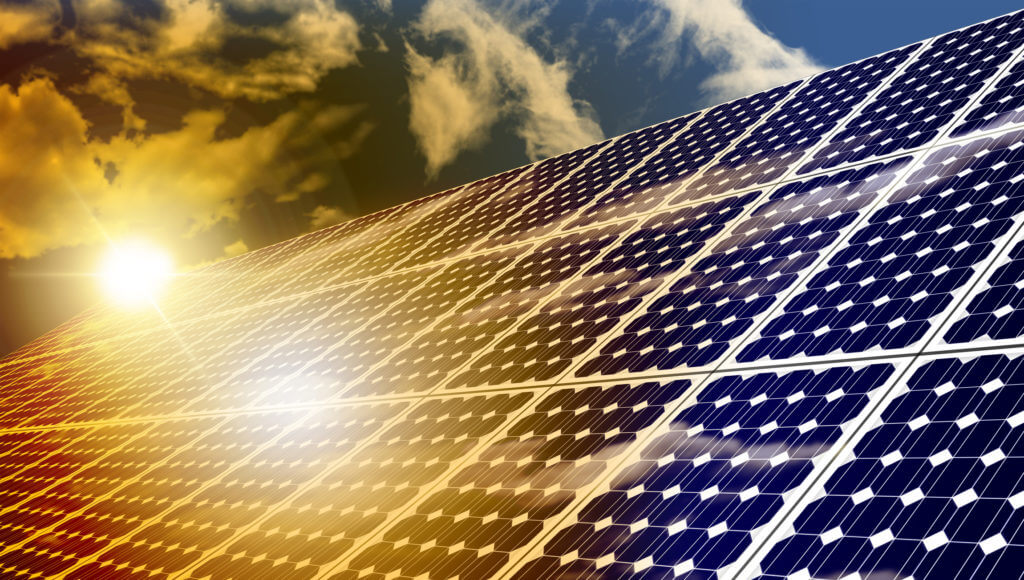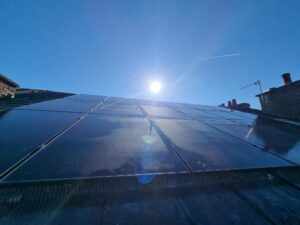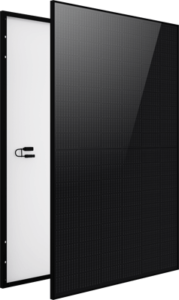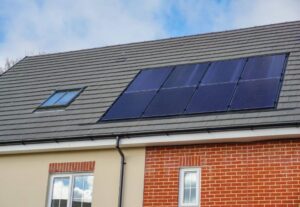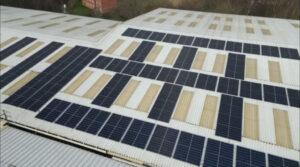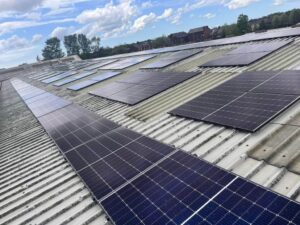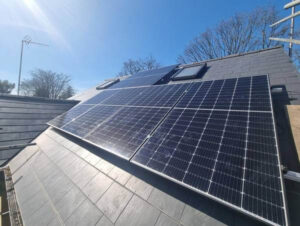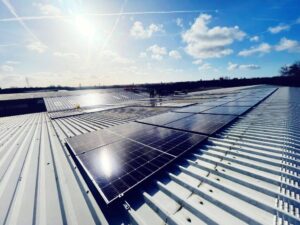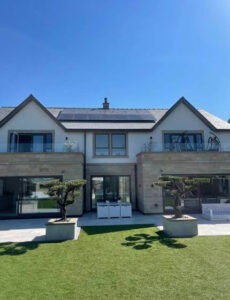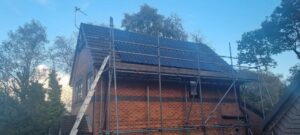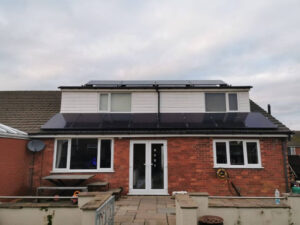An Introduction to Solar Panels
– Harness the Sun’s Energy with Solar Panels – Understand How it Works
– Going Green with Solar Panels – Benefits and Drawbacks
– Get Started Generating Electricity with Solar Panel Installation
Solar panels are a great way to generate clean energy and reduce dependence on fossil fuels. Solar panels use the sun’s rays to convert them into electrical energy, allowing households and businesses to save money while doing their part in helping protect the environment. Solar panel technology is constantly evolving, becoming more efficient and affordable over time. This article will provide an overview of solar panel basics, including how they work, different types of solar panels available, installation requirements, costs associated with using them, as well as benefits and drawbacks associated with solar power generation. By understanding these basics about solar panels, you can make an informed decision when it comes to going green with your energy usage.
- What are Solar Panels and How Do They Work
- Solar Panel Installation Requirements
- Costs Associated with Solar Power Generation
- Benefits of Solar Power Generation
- Drawbacks of Solar Power Generation
- Going Green with Solar Panels
What are Solar Panels and How Do They Work
Harnessing the power of the sun, solar panels transform light into usable electricity. Made from photovoltaic cells sandwiched between layers semi-conductive materials such as silicon and energized by photons from the sun, a direct current is produced in what’s known as the photoelectric effect. This energy then passes through an inverter to be converted into alternating currents which can supply homes or businesses with clean renewable electricity that’s easy on resources!
Solar Panel Installation Requirements
The requirements for the installation of solar panels North West & other areas of the UK vary depending on the type of solar panel you choose. Solar panels can be mounted in-roof, on roof, or installed with a ground-mounted racking system. Rooftop installations are the most popular, as they require minimal setup and are more aesthetically pleasing. Ground-mounted systems are more complex but are an option for larger properties or homes with a greater need for power.
Costs Associated with Solar Panels
The cost for the installation of solar panels Bolton & other areas of the UK will vary depending on the size of the project, the type and quality of Solar Panel components used, and labour costs. Solar panels can be an expensive upfront investment, but the savings in energy costs over time can make up for it. Solar panel systems may also qualify for government incentives which can help to offset the initial cost.
Benefits of Solar Panels
The benefits of solar panels are numerous. Solar power is clean and renewable, meaning it does not produce any harmful carbon emissions or pollutants into the environment. Solar energy also reduces our dependence on fossil fuels and helps to decrease electricity costs over time. Solar panels can be used for a variety of applications, from powering residential homes to large-scale businesses. Solar energy is also much cheaper than traditional electricity sources in the long run and can be an asset during periods of high energy demand or power outages with a the right system.
Drawbacks of Solar Panels
The drawbacks of solar panels must also be considered before making the switch. Solar panels require direct sunlight for maximum efficiency, so cloudy days can reduce the amount of energy produced. Solar panel systems are also more expensive than traditional sources of electricity and require an upfront investment to install them. Solar panels also take up space on properties, which may be a disadvantage for those with limited room or who wish to preserve their land. Although now they are developed with a sleeker design, they are still considered by some to unsightly additions.
Going Green with Solar Panels
Solar panels are becoming increasingly popular as a clean, renewable source of energy. Going green with solar panels is a great way to help the environment for future generations. They are an eco-friendly alternative to traditional energy sources such as coal, oil, and natural gas. They also provide renewable energy that is free from emissions and pollutants. Having solar panels at your home or business can reduce your family’s or businesses carbon footprint, in turn helping the UK government reach their ambitious goal of being carbon neutral by 2050!
Final Thoughts
Solar power is clean, renewable energy that can be used to power homes and businesses alike. Solar panels come in many different types, sizes, and styles with varying installation requirements and costs associated with them. While the initial investment may seem high, solar panel owners will soon realize their savings through reduced electricity bills over time. Furthermore, using solar-generated electricity also helps reduce your carbon footprint which benefits both you personally as well as the environment at large. All things considered, investing in solar panels is an excellent way to save money while helping protect our planet from further damage due to climate change. Before making the switch to solar panels, it is important to understand the basics of solar panels, the installation requirements, costs associated with them, as well as the benefits and drawbacks associated with them. By understanding these basics about solar panels, you can make an informed decision when it comes to going green with your energy usage
To make the switch to solar…
So, if you’re looking to go green and reduce your dependence on fossil fuels? Solar panels are the perfect solution! Solar panels provide a reliable source of clean, renewable energy that can help you save money. Speak to us at Contact Renewables today to learn more about how the services for the installation of our solar panels Blackpool & other areas of the UK can get you started on the path to a greener future. We look forward to hearing from you!

